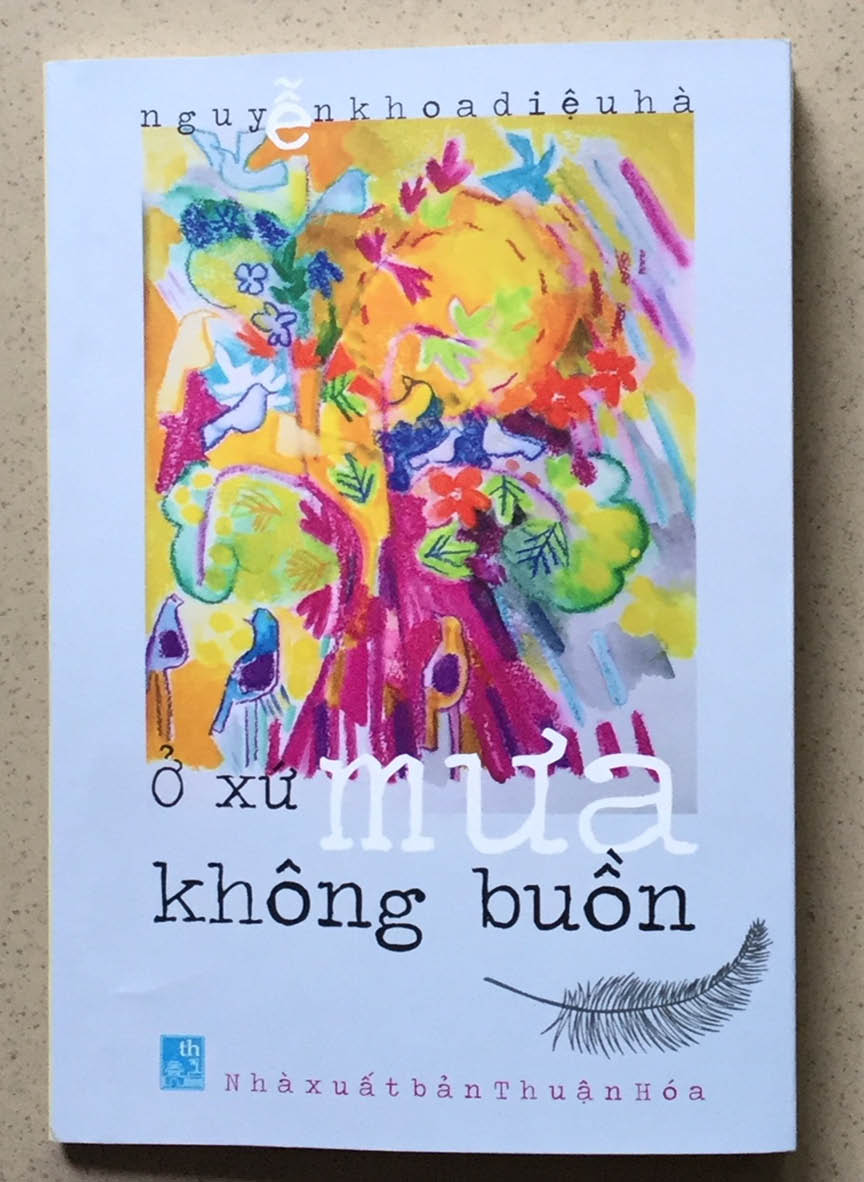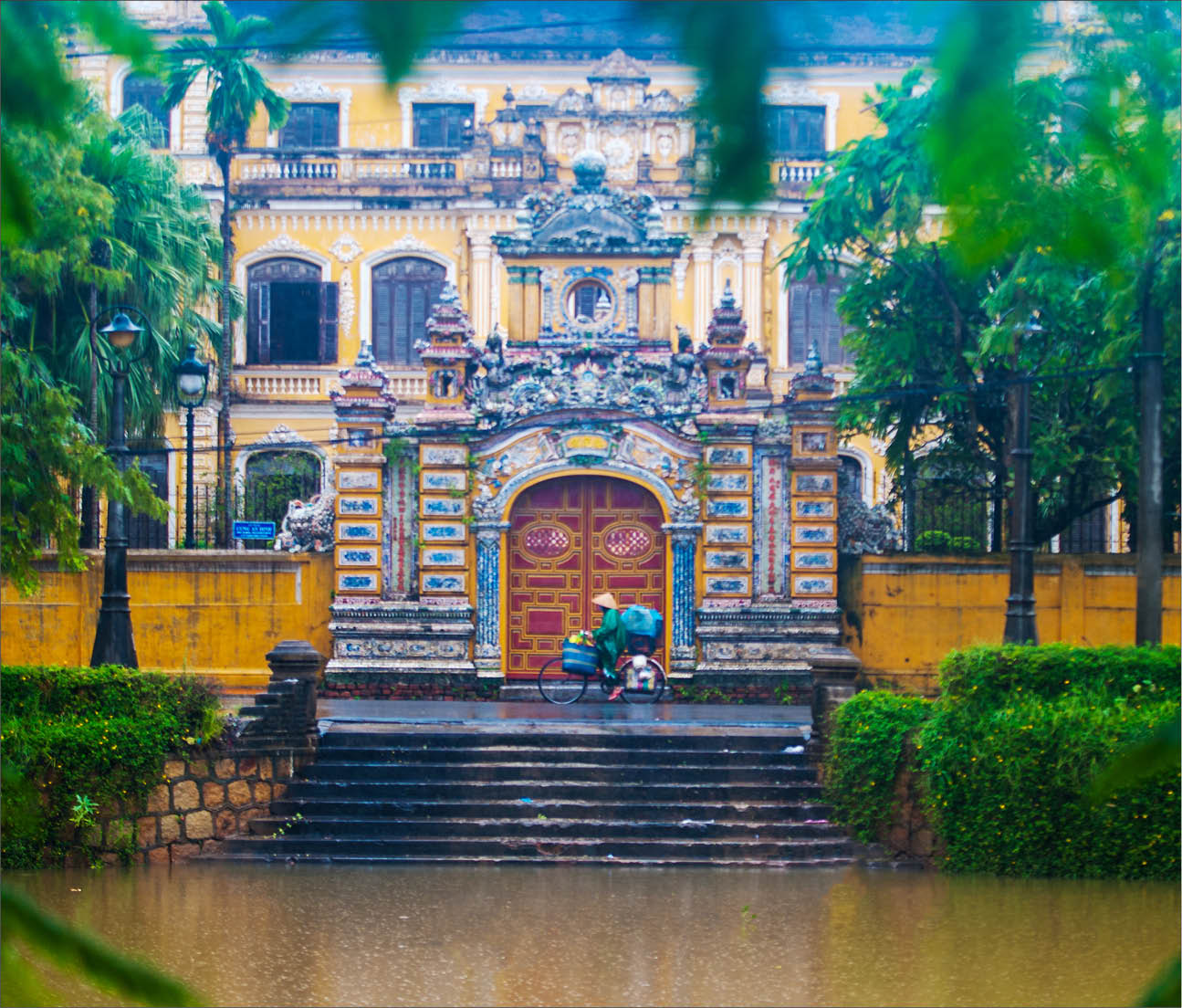
“In the Region Where Rain is not Depressing”
Tran Thuy Mai, a writer, who is residing in a very far-away place from Hue, writes the introduction for this book with respect: “Reading Dieu Ha’s book with more than 30 essays, I feel like I were sitting on the magical carpet of Aladdin, flying to my beloved region which no vehicle can take me to: (in) the Region Where Rain is not Depressing”. As a reporter of TRT, Ha travels far and wide to every village. She can therefore feel the good scent of soil and recognize the sweet taste of the sun, the rain, the plant...”
It is her special love for Hue, her traveling to various lands, and her feeling all the flavors of the homeland that give her book a position among others of the same kind in recent years.
It is easy to see and a matter of course that her book is filled with Hue flavor because she herself a descendant of Nguyen Khoa family, being born and living in the ancient capital of Hue. But more than that, although she does not bother literature schools, her book contributes significantly to the line of "ecological literature,” which is the focus now.
In “Another Door,” she writes about the love of Hue people for trees. On a windy day, the mother told her son to care for the banana plant in bloom: “Poor her! What a pity if both the mother and her child snap.” “Mother” and “her child” are the banana plant itself and the small plant next to it. Only a mother in the village who loves trees so much says so.
And the author exclaimed, "Oh God, my mom considers banana plants as humans. But not only her, many other people in Hue also see trees as people.” Likewise, Dieu Ha remembers the day her grandfather passed away, many trees in the garden were also tied with white ribbons on the trunks, as if they were mourning for the death.

Rain in Hue is also a specialty. Photo: Hoang Hai
“Trees are like eyes for people to look at a land. Looking at trees in a garden, we can know something about the gardener. We go through seasons and the love for trees increases. Going through spring, we come to sympathize with trees that could survive the cold winter, accumulating the warm sap inside for buds in spring. Going through autumn with yellow leaves on the ground, we feel sorry for bare trees in winter. Those who love trees will love everything. Looking into their blue eyes, we can see hope and calmness. They are like open windows revealing the inner life of man.”
Only a thoughtful woman with acute observation can write such beautiful lines. It can be added that her wittings are not only beautiful, but also profound, making readers recall old stories while thinking about the present society and tomorrow.
Nguyen Khoa Dieu Ha’s writings also remind us not to forget those who led quiet lives but left a good impression on both Hue people and tourists. Mr. Sieu (Pham Dang Sieu) was an example. He lived alone on Phan Dang Luu Street, spending all his life raising fund and giving presents to poor people.
Riding his old bicycle, he did so for nearly 40 years. Many successful people today still remember the “Phieu Mau rice bowl” that Mr. Sieu brought them when they were in difficulty. Or there was Mrs. Nguyen Thi Buoi, selling beef noodle soup on Bach Dang St. She had to stay up late and got up very early in the morning to cook. Though her shop was always crowded with diners, she never failed to clean the bowl brinks before handing them to diners. Many foreigners came to enjoy her noodle soup. Their eyes kept shedding tears because the soup was hot, but their heads kept nodding, signaling that it was so delicious. “They even tipped her.”
Writings by Nguyen Khoa Dieu Ha are like a bowl of Hue beef noodle soup which enters readers’ minds with various cultural flavors and her love for her homeland.
Story and photo: Nguyen Khac Phe